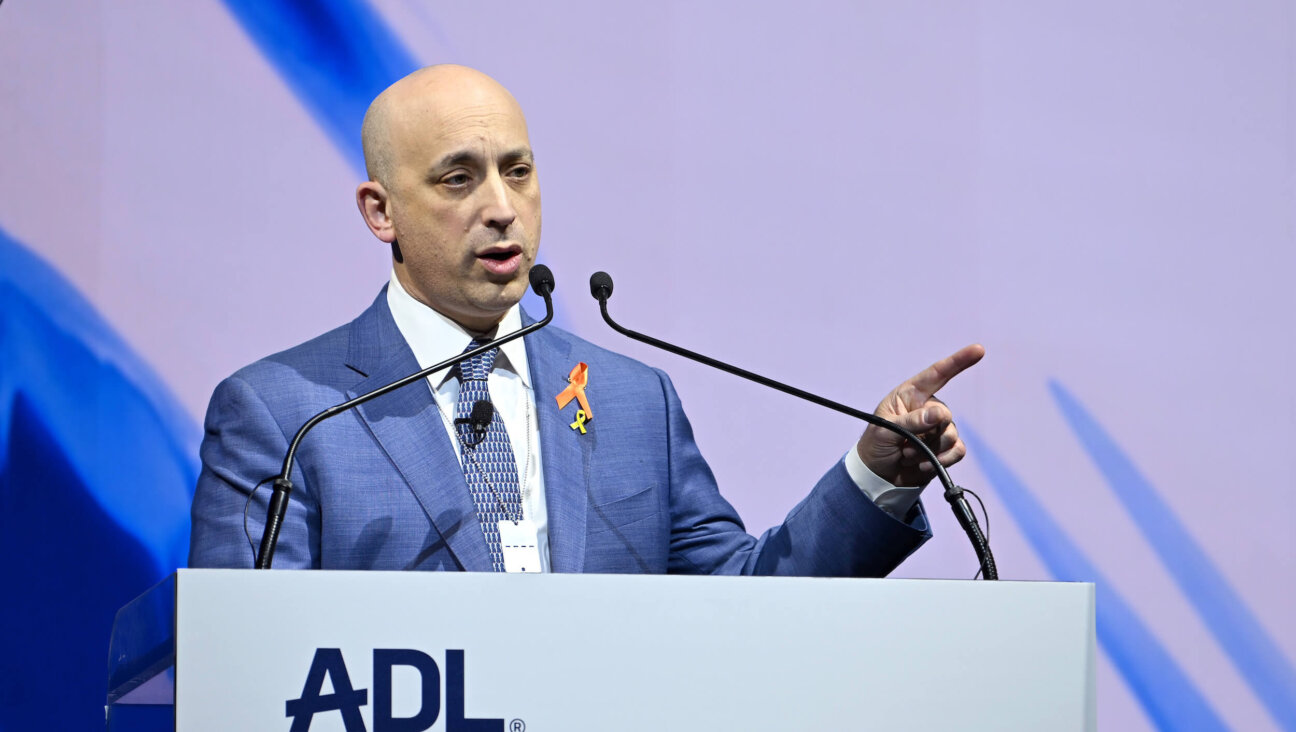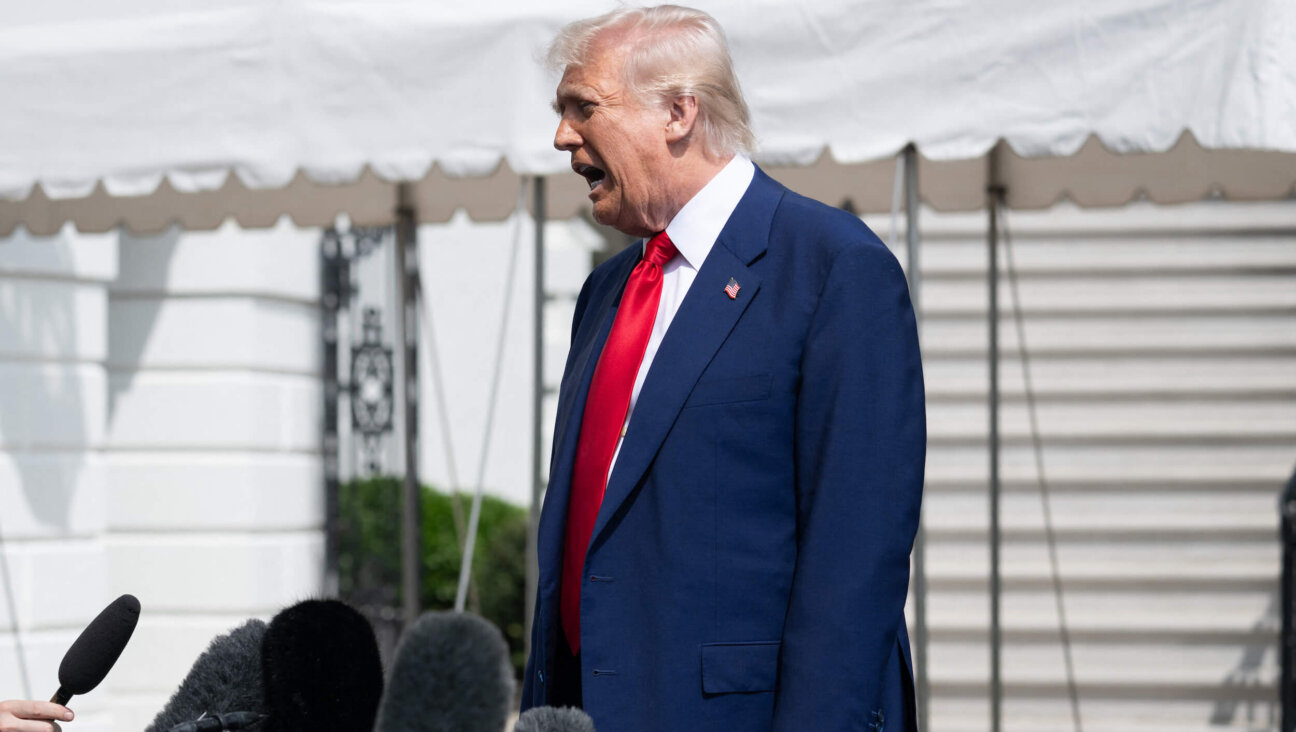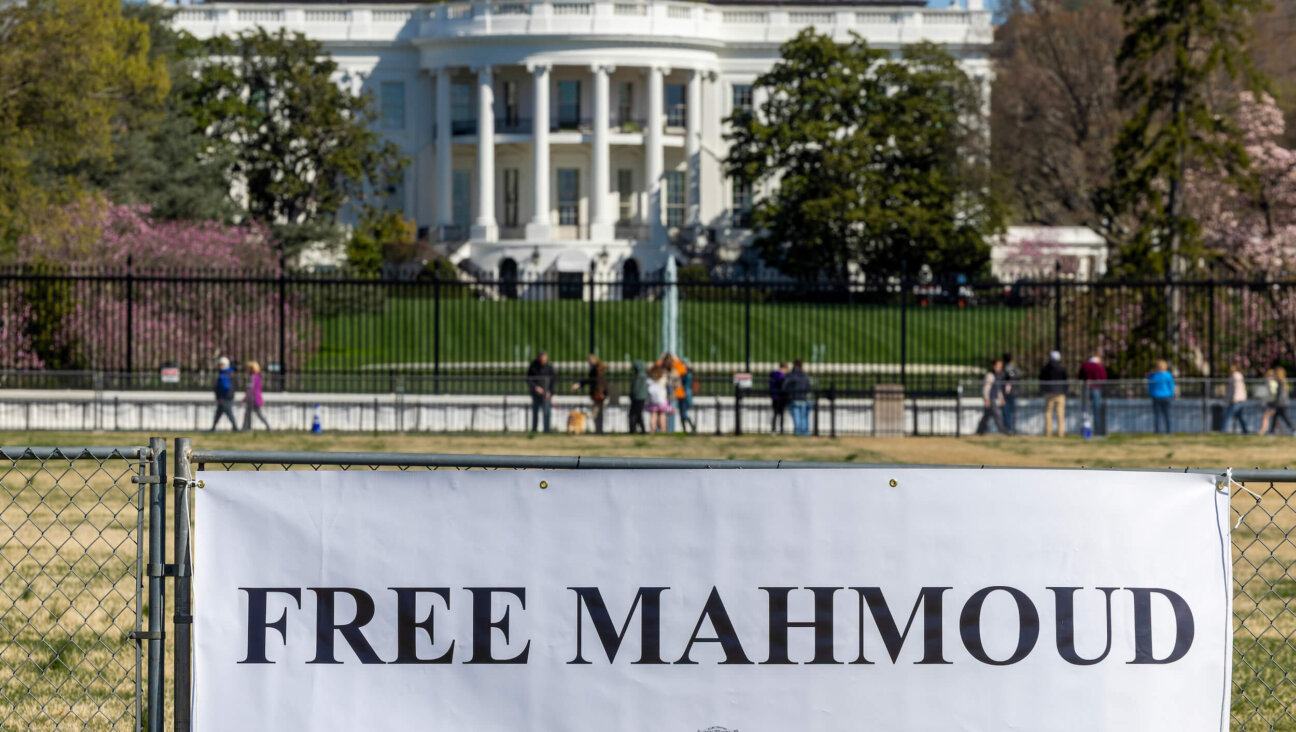The Pope Has Given Catholics a Choice
A statement that His Holiness Pope Benedict XVI issued on July 7 has rightfully received a tremendous amount of attention from Jewish and interfaith organizations. Through the “Apostolic Letter in the Form of Motu Proprio” and a subsequent letter to the bishops of the Church, the pope has shifted the liturgical options for Catholics worldwide, causing some to declare that a blow had been dealt to Jewish-Catholic relations.
The criticism is based on the assumption that the apostolic letter approves of the Church returning to a pro-conversion doctrine. A closer look at the pope’s words, however, reveals that this may not be the case at all. In fact, the statement may actually allow Catholics to consciously act in ways that will enhance Jewish-Catholic relations.
The apostolic letter gives permission for Catholics to celebrate mass using the Roman Missal published by Pope John XXIII in 1962, known as the Tridentine Mass, rather than the missal promulgated by Pope Paul VI that has been in use since 1970. It states that the “normal” liturgy will still be the one used for the last 37 years, but that the 1962 liturgy may be used as an “extraordinary expression of the law of prayer.”
The earlier missal is in Latin, and for many Catholics who appreciate Latin as deeply as Jews treasure Hebrew, this statement of the current pope is good news. For Jews, however, it seems far less so, at least at first glance.
The missal of 1962 — while not as offensive to Jews as earlier Tridentine liturgy, which called Jews “perfidious” — contains in it the “Prayer for the Conversion of Jews,” to be said on Good Friday. In this prayer, Catholics are to pray:
“For the conversion of Jews. Let us pray also for the Jews that the Lord our God may take the veil from their hearts and that they also may acknowledge our Lord Jesus Christ. Let us pray: Almighty and everlasting God, you do not refuse your mercy even to the Jews; hear the prayers which we offer for the blindness of that people so that they may acknowledge the light of your truth, which is Christ, and be delivered from their darkness.”
The petition that God does not refuse His mercy even to Jews may perhaps be worthy of appreciation, but this prayer is clearly antithetical to any sort of meaningful ecumenical dialogue. In 1970, the Church also recognized that, and the missal was changed to a prayer that is much more accepting of Jewish belief.
“Let us pray for the Jewish people, the first to hear the word of God, that they may continue to grow in the love of his name and in faithfulness to his covenant. Almighty and eternal God, long ago you gave your promise to Abraham and his posterity. Listen to your church as we pray that the people you first made your own may arrive at the fullness of redemption.”
Currently said on Good Friday, this newer prayer demonstrates a respect for Jews not found in the earlier version. While keeping the identity of the Church, this current version accepts the Jewish choice. It eliminates the offensive language in the earlier prayer, and allows for Catholics and Jews to have theological dialogues without the underlying tensions of one side feeling superior to the other.
Much of the media attention has been based on the assumption that the pope is now allowing the antisemitic dialogue of the earlier prayer back into the liturgy. But a close reading of the pope’s words shows that while the Tridentine Mass can now be practiced, this prayer of Jewish conversion is not necessarily included in the permissive statement.
Article II of the July 7 statement specifically says that any priest may use either the 1962 or the 1970 missal “on any day except in the Sacred Triddum” — that is, during the three days from the evening of Holy Thursday until the evening of Easter Sunday. During the Triduum, Catholics are still to utilize the later liturgy — which does not contain a prayer for conversion of Jews.
During the rest of the entire liturgical year, Catholics will have the right to use either the “ordinary expression” of the last 37 years, or the Latin “extraordinary expression” of 1962. But in either choice, the offensive conversion prayer is not a part of the accepted liturgy.
So if the offensive prayer is specifically excluded, why the commotion?
From 1570 until 1962, the conversion prayer’s liturgical definition of Jews manifested in an increase in antisemitic persecutions leading to abuses, pogroms and even Jewish deaths. Pope Benedict’s acceptance of the Tridentine Mass, even without the overtly offensive conversion prayer, brings up the painful reminder of those horrific experiences and opens a psychological and spiritual wound within many Jews that has only recently begun to be healed through meaningful ecumenical dialogue.
After centuries of persecution, it is only understandable that the pope’s reintegration of the Tridentine Mass is interpreted by many as potentially dangerous. But as understandable as the reaction may be, it would be a shame to miss out on the opportunity to deepen interfaith relations presented by the apostolic letter .
According to the pope’s statement, permission to use the 1962 missal is not given until the Feast of the Exaltation of the Holy Cross. On the day of the feast, which this year falls on September 14, Catholics who so desire can once again recite the prayers in Latin that were said in 1962, or they can choose to reject the implications of utilizing this liturgy entirely and continue to pray with the Roman missal that is presently used.
Every Catholic can choose whether he or she wants to pray in Latin or in the vernacular. And every Catholic can now choose whether he or she wants to pray utilizing liturgy that is associated with antisemitism, or cast away that practice entirely in favor of praying in a way that is more respectful of other faiths. Come September 14, the choice is theirs.
On that day, Jews, too, will have a choice. Those of us outside of Israel will be observing the second day of Rosh Hashanah. On the Jewish new year, we are enjoined to take an accounting of ourselves, to cast away our sins through Tashlich and to make repentance. We are enjoined to introspect, but no one forces us — it is a choice.
This year, will each of us — Jew and Catholic — cast away our preconceptions of the other in favor of having honest and meaningful interfaith dialogue? Can we cast out our prejudices and pains, our wounds and self-centeredness, in favor of creating a new time of peace between people of different faiths? Can we choose to really see each other, to value each other’s faith and traditions, and to respect each other as children of the same God?
I pray that we will make choices that allow us to recognize the divinity in each other.
Rabbi Michael Barclay serves in the campus ministry and teaches theology at Loyola Marymount University.
The Forward is free to read, but it isn’t free to produce

I hope you appreciated this article. Before you go, I’d like to ask you to please support the Forward.
At a time when other newsrooms are closing or cutting back, the Forward has removed its paywall and invested additional resources to report on the ground from Israel and around the U.S. on the impact of the war, rising antisemitism and polarized discourse.
Readers like you make it all possible. We’ve started our Passover Fundraising Drive, and we need 1,800 readers like you to step up to support the Forward by April 21. Members of the Forward board are even matching the first 1,000 gifts, up to $70,000.
This is a great time to support independent Jewish journalism, because every dollar goes twice as far.
— Rachel Fishman Feddersen, Publisher and CEO
2X match on all Passover gifts!
Most Popular
- 1

News A Jewish Republican and Muslim Democrat are suddenly in a tight race for a special seat in Congress
- 2

Fast Forward The NCAA men’s Final Four has 3 Jewish coaches
- 3

Fast Forward Cory Booker proclaims, ‘Hineni’ — I am here — 19 hours into anti-Trump Senate speech
- 4

Film & TV What Gal Gadot has said about the Israeli-Palestinian conflict
In Case You Missed It
-
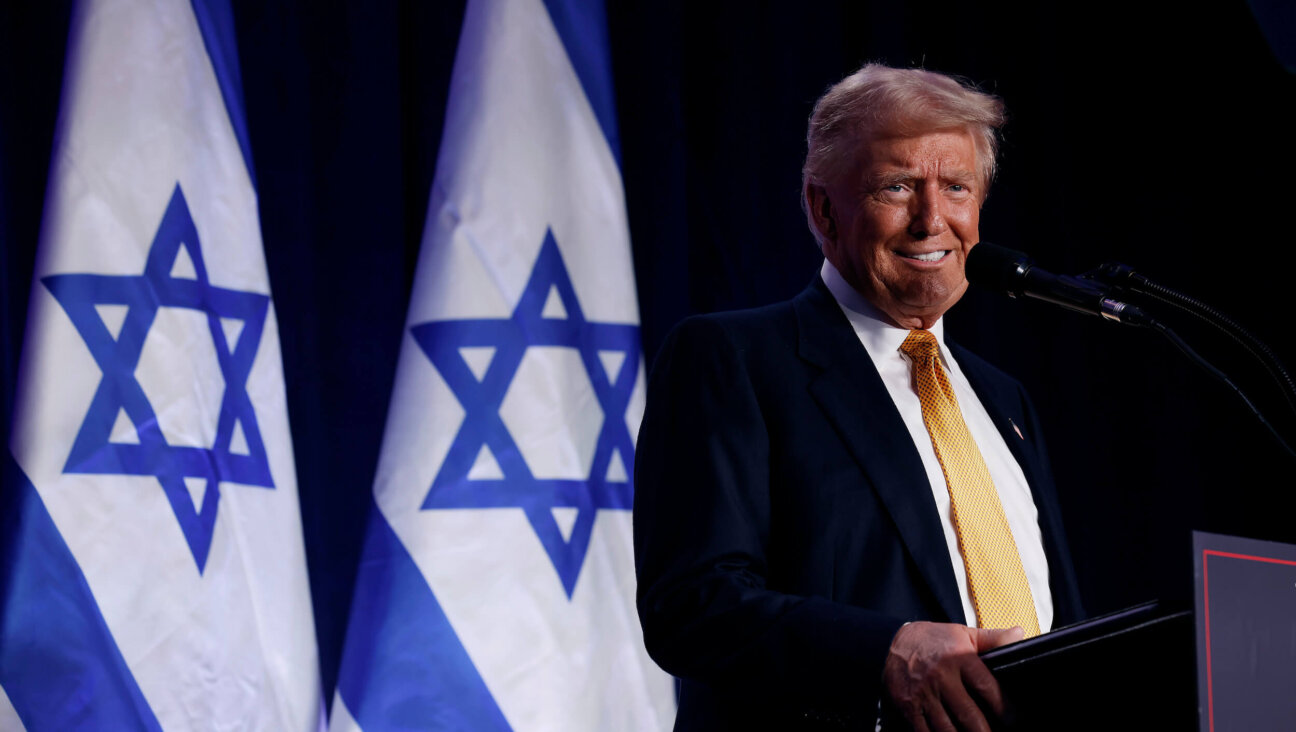
Opinion I co-wrote Biden’s antisemitism strategy. Trump is making the threat worse
-
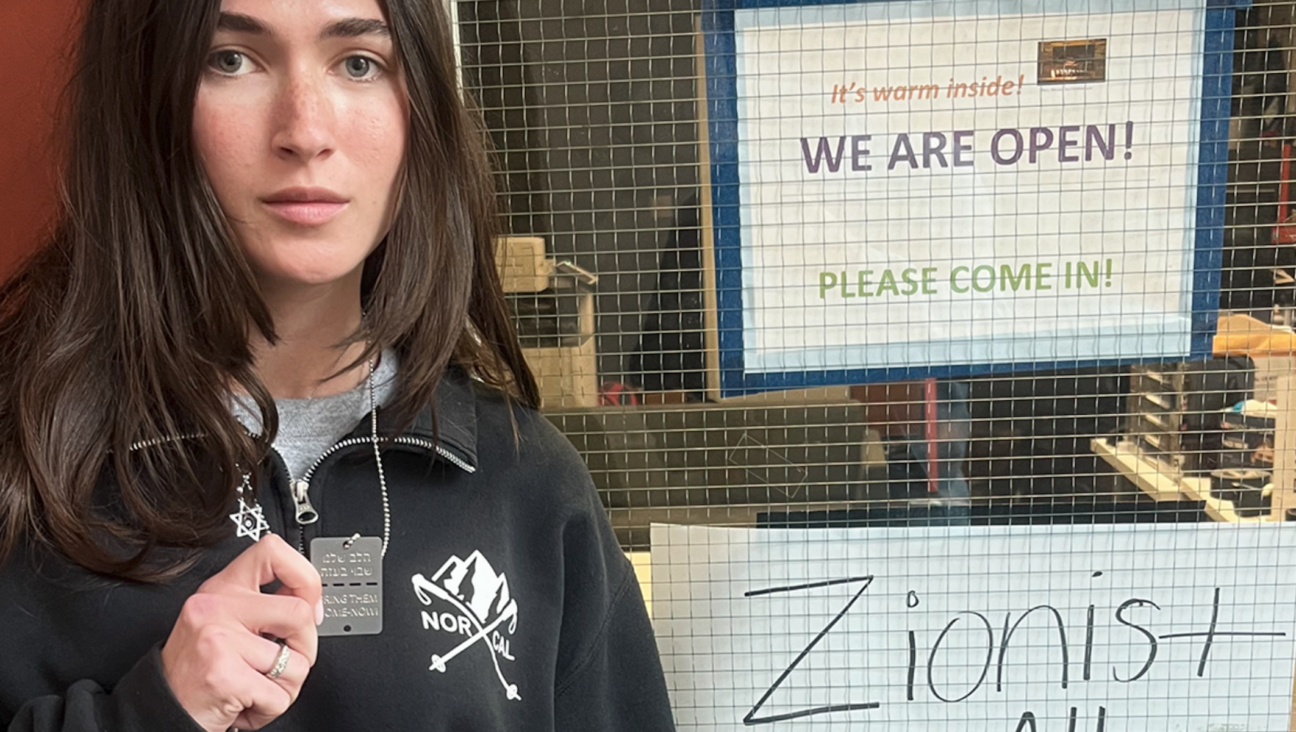
Fast Forward From ‘October 8’ to ‘The Encampments,’ these new documentaries illuminate the post-Oct. 7 American experience
-

Fast Forward Jews at Tufts are furious over ICE seizing a pro-Palestinian grad student. But they’re wary of joining protests for her.
-
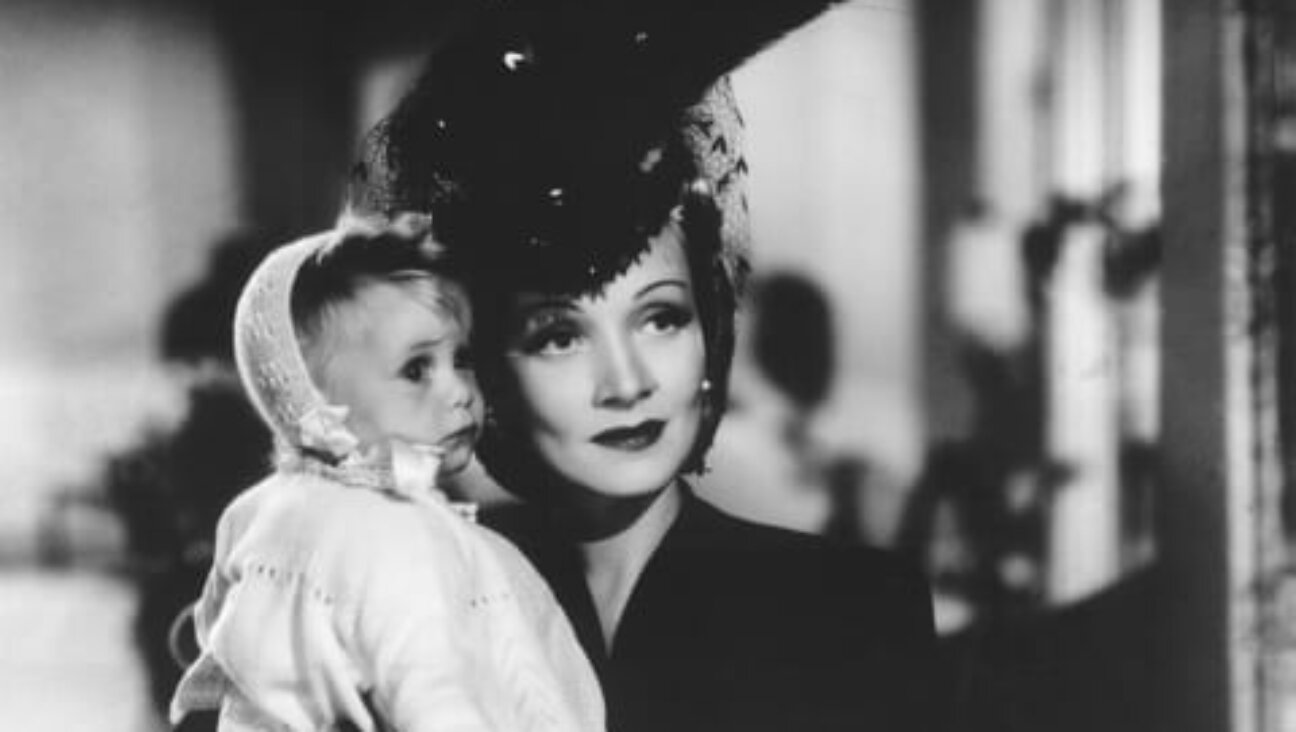
Film & TV How Marlene Dietrich saved me — or maybe my twin sister — and helped inspire me to become a lifelong activist
-
Shop the Forward Store
100% of profits support our journalism
Republish This Story
Please read before republishing
We’re happy to make this story available to republish for free, unless it originated with JTA, Haaretz or another publication (as indicated on the article) and as long as you follow our guidelines.
You must comply with the following:
- Credit the Forward
- Retain our pixel
- Preserve our canonical link in Google search
- Add a noindex tag in Google search
See our full guidelines for more information, and this guide for detail about canonical URLs.
To republish, copy the HTML by clicking on the yellow button to the right; it includes our tracking pixel, all paragraph styles and hyperlinks, the author byline and credit to the Forward. It does not include images; to avoid copyright violations, you must add them manually, following our guidelines. Please email us at [email protected], subject line “republish,” with any questions or to let us know what stories you’re picking up.







